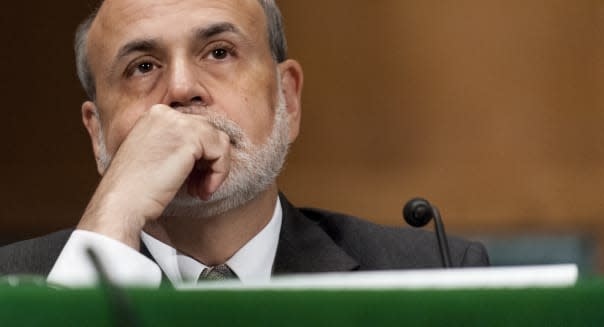How the Fed's QE Taper May Trigger the Next Global Financial Crisis

More than five years after the financial crisis began, many on Wall Street, Main Street and in government at all levels agree there's still much to be done to get the U.S economy back on track.
Yet even the improvements we've already achieved could be derailed by a looming worldwide financial crisis -- a crisis caused by the very economic stimulus policies put in place by the Federal Reserve to help the U.S. get out of its dire economic straits. At least, that's the warning coming from economist Stephen Roach, senior fellow at Yale University's Jackson Institute for Global Affairs.
In a post at the Project Syndicate website, Roach writes:
As the Fed attempts to exit from so-called quantitative easing (QE) -- its unprecedented policy of massive purchases of long-term assets -- many high-flying emerging economies suddenly find themselves in a vise. Currency and stock markets in India and Indonesia are plunging, with collateral damage evident in Brazil, South Africa and Turkey.
Roach goes on to say that the Fed views itself as blameless -- a perspective he feels shows the Federal Open Market Committee to be steeped in denial. The Fed's quantitative easing -- the first round of which began in late 2008 -- pushed interest rates to record-low levels and kept them there, leaving investors to look for other places to park their money and chose emerging economies in search of higher yields.
Sponsored Links
But as word has spread of the Fed's plan to taper its stimulus, investors have begun pulling money out of those countries' economies, leaving policymakers in them with few other options but to adopt conventional strategies -- such as raising interest rates -- which tend to slow growth.
Should the Fed's policies induce another financial crisis, it won't be the only entity worthy of blame. Roach notes that each of the countries mentioned above is running a huge current account deficit caused by increased imports and too few exports. That's a sure sign "of a pre-crisis economy living beyond its means -- in effect, investing more than it is saving."
Sound familiar? It should. More from Roach:
America's gaping current-account deficit of the mid-2000's was, in fact, a glaring warning of the distortions created by a shift to asset-dependent saving at a time when dangerous bubbles were forming in asset and credit markets.
Developing economies are now feeling the full effect of the Fed's plan to begin rolling back quantitative easing," Roach says. And though politicians in those countries are responsible for failing to keep their own financial houses in order, he says, "the Fed is just as guilty, if not more so, for orchestrating this failed policy experiment in the first place."
(h/t Business Insider)
%Gallery-193406%

